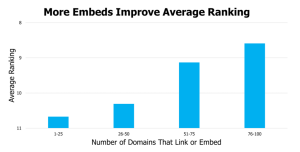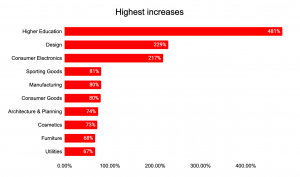By Sam Becker

Many Americans may have found ways to be more comfortable with less money over the course of the pandemic, but that doesn’t mean that their account balances have them floating on cloud nine.
In fact, almost all full-time workers in the U.S. (97%) say that they experience financial stress in some shape or form, according to a new survey from Purchasing Power, which was conducted by Harris Poll in March and surveyed more than 1,100 Americans with full-time jobs. It also found that more than half (54%) of respondents were “unable or barely able to cover monthly living expenses over the past year—a figure that declined only 2% from 2021.
Interestingly, it’s not just those on the lower end of the earning strata who are feeling increasingly squeezed and stressed—a quarter of households earning six figures are living paycheck-to-paycheck, too, the data shows. “What is surprising is that these results aren’t exclusive to households with lower incomes,” said Trey Loughran, the CEO of Purchasing Power, a provider of employee purchasing programs.
When you consider that inflation is also eating away at Americans’ purchasing power, it may be safe to assume that Americans are feeling more financial stress than ever, even during the doldrums of the pandemic, when stimulus and government support systems temporarily helped alleviate monetary pressures for many households.
And financial stress can be a multidimensional problem. A 2021 survey from the American Psychological Association (APA) found that among the top “significant sources of stress” for the more than 3,000 people surveyed were “work,” “money,” “the economy,” “housing costs,” and “job stability.”
Bosses, you should care
As far as why employers may be concerned about the fact that virtually all of their employees are feeling the money crunch, financial stress has been tied to a variety of on-the-job performance issues, such as a loss of productivity, and a loss of focus, which could lead to mistakes and potential revenue losses.
Paying employees more can help: A 2021 NBER working paper, studying the effects of financial stress on low-income Indian manufacturing workers, found that workers who are paid earlier and paid more can see an increase in productivity by as much as 7.1%, in addition to making fewer mistakes.
People with financial stress also say it affects their sleep, physical health, and overall happiness, in addition to contributing to their overall stress at home, according to the Purchasing Power report.
Paying employees more may not be a permanent solution for all workers, especially during a time of high inflation, since even relatively high-income households, such as those bringing in six figures, struggle with financial stress. For some, dealing with financial pressure will require some planning and strategizing. And if the economy slips into a recession, which may be more likely than not at this point, getting a grip on their personal finances may be more important than ever.
For the millions of Americans trying to get a grasp on their financial anxiety, getting back to some financial basics is probably the simplest and most effective route forward. That includes taking some relatively simple steps, like creating a budget, tracking your spending, and even reaching out to a professional for help, per the APA.
While these steps won’t necessarily serve as an overnight financial cure-all, getting a grasp on your finances can be a powerful first step toward feeling more confident about your financial picture—or at least help you get some sleep at night.
Fast Company , Read Full Story
(28)
Report Post







